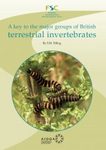Textbook
By: Bernd Schierwater(Editor), Rob DeSalle(Editor)
627 pages, 280 colour & b/w photos, colour & b/w illustrations, and colour distribution maps; colour tables
![Invertebrate Zoology Invertebrate Zoology]()
Click to have a closer look
About this book
Contents
Customer reviews
Biography
Related titles
About this book
Invertebrate Zoology: A Tree of Life Approach is a comprehensive and authoritative textbook adopting an explicitly phylogenetic organization. Most of the classical anatomical and morphological work has not changed – it established the foundation of invertebrate zoology. With the explosion of Next Generation Sequencing approaches, there has been a sea-change in the recognized phylogenetic relationships among and between invertebrate lineages. In addition, the merger of evolutionary and developmental biology (evo-devo) has dramatically contributed to changes in the understanding of invertebrate biology. Synthesizing these three approaches (classical morphology, sequencing data, and evo-devo studies) offers students an entirely unique perspective of invertebrate diversity.
Contents
Prologue
- Introduction to Invertebrate Zoology
- How to Study Invertebrates
- Invertebrate Phylogenomics
- Modern Invertebrate Systematics: The Phylogenetics of Early Metazoa
- Organizing Invertebrates
- Introduction to the Invertebrate Tree of Life
- Choanoflagellata and others
- Placozoa
- Porifera
- Ctenophora
- Cnidaria
- Scyphozoa
- Anthozoa
- Hydrozoa
- Myxozoa
- Bilataria
- Platyhelminthes
- Chaetognatha
- Gastrotricha
- Rotifera
- Gnathostomulida, Micrognathozoa and Cycliophora
- Lophotrochozoa
- Mollusca
- Annelida
- Ectoprocta and Phoronida
- Nemertea
- Acanthocephala
- Entoprocta
- Ecdysozoa
- Crustacea
- Hexapoda
- Chelicerata
- Myriapoda
- Onychophora
- Nematoda
- Tardigrada
- Nematomorpha, Priapulida, Kinorhyncha
- Deuterostomea
- Echinodermata
- Xenoturbellida
- Chordata - Topic Invertebrate Chordates
- Epilogue
Customer Reviews
Biography
Bernd Schierwater currently works at the Institute of Animal Ecology and Cell Biology, University of Veterinary Medicine Hannover. His research is in Developmental Biology, Ecology and Evolutionary Biology. Current projects 'involve early metazoan evolution', 'placozoan systematics and genomics' and 'Next Generation Biomonitoring of Global Warming'.
Rob DeSalle is in the Sackler Institute for Comparative Genomics at the American Museum of Natural History. He began as a Drosophila biologist, but more recently has branched out into other insect and invertebrate organisms with phylogenomic approaches. His research group focuses on bioinformatics and biodiversity.
Textbook
By: Bernd Schierwater(Editor), Rob DeSalle(Editor)
627 pages, 280 colour & b/w photos, colour & b/w illustrations, and colour distribution maps; colour tables


































